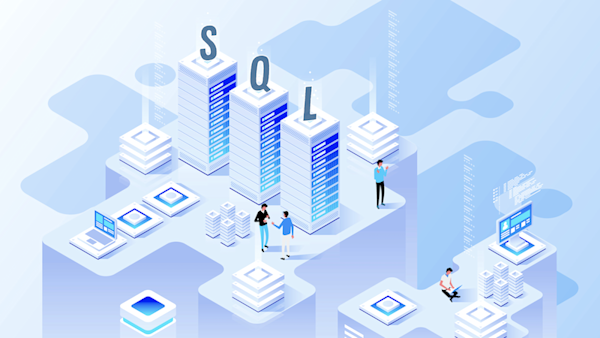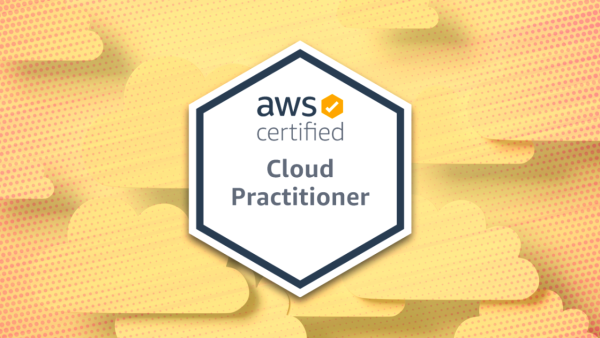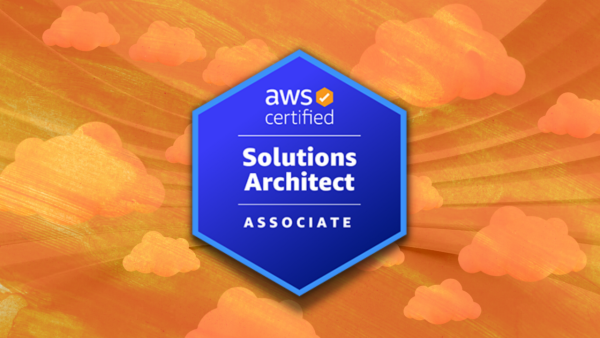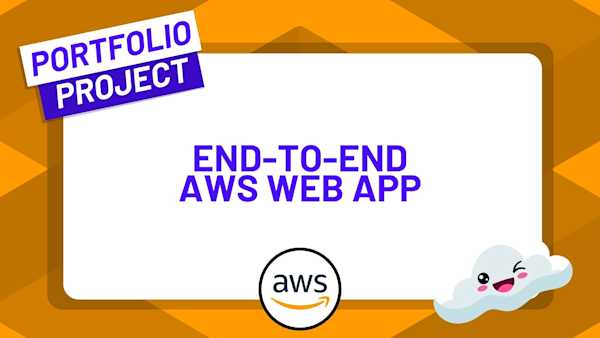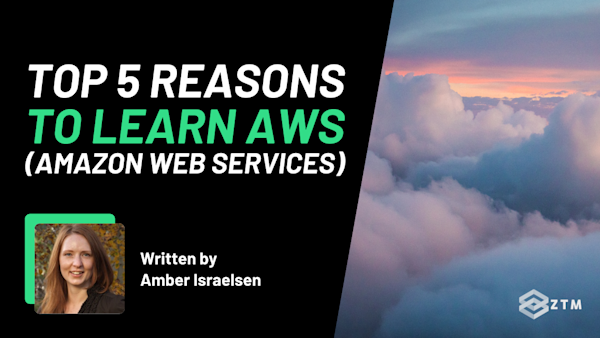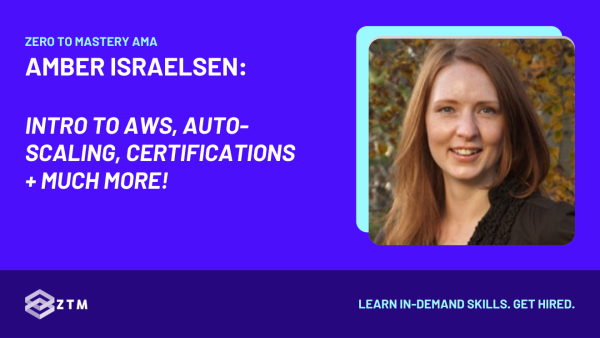Cloud computing has revolutionized how organizations operate, making Cloud Architects some of the most in-demand professionals in tech. It’s a career that combines high earning potential, endless growth opportunities, and the chance to design systems that power entire businesses.
The question, of course, is how do you become one?
Well, the good news is that in this guide, I’ll show you exactly how to get there, as well as cover the essential skills, certifications, and step-by-step strategies to help you land your first Cloud Architect role.
So whether you’re already working in the industry and looking for the next steps, or just starting your tech journey and want to see where to start and how to reach this senior role, I’ve got you covered.
Grab a coffee, and let’s get started and cover some common questions upfront.
What is the Cloud?
The cloud refers to a network of servers and software hosted on the internet rather than on your local computer or company’s data center.
These servers, managed by providers like AWS, Azure, and Google Cloud, allow businesses to access resources such as storage, databases, and applications on-demand, and from anywhere in the world.
Why care?
Well, this means that instead of buying and maintaining expensive hardware, companies can "rent" these resources and pay only for what they use. This makes using the cloud faster, more scalable, and often more cost-efficient than traditional on-premises systems.
It’s why businesses of all sizes are shifting to cloud computing. The trick of course is managing that shift, which is where cloud architects come in
What is a Cloud Architect and what do they do?
Kind of like how an architect creates a blueprint for a house, a cloud architect is the master planner for a company’s cloud systems.
But instead of walls, windows, and plumbing, they work with servers, storage, networks, and databases. Their goal is to ensure every component fits together seamlessly to meet the business’s needs while creating a secure, reliable, scalable, and cost-efficient system.
This will usually involve:
Planning the setup: Collaborating across departments to design cloud systems that align with business goals, scale with demand, and maintain performance under varying workloads
Choosing the right cloud provider(s): Should the company use AWS, Azure, Google Cloud, or a combination? If so, why?
Managing costs: How can the company use cloud resources without exceeding its budget?
Migrating to the cloud: Figuring out how to move the company's current systems without downtime or breaking everything
Keeping data safe and compliant: What security measures and compliance standards (like GDPR or HIPAA) do they need to follow?
Establishing best practices: Setting guardrails to ensure developers follow cloud governance policies
Training teams: Recommending training programs to upskill teams so they can use cloud tools effectively
Monitoring and maintenance: Overseeing system health, optimizing performance, and ensuring uptime
TL;DR
A Cloud Architect isn’t just a tech expert. They’re also a problem solver, strategist, and communicator, helping businesses maximize the value of the cloud while addressing complex technical and business challenges.
It’s a role that requires a strong mix of technical skills and real-world experience across different areas of tech, which is why it’s considered a more senior position. But that also means it pays extremely well and is in high demand.
Speaking of that demand…
Is becoming a Cloud Architect a good career choice?
Absolutely! Cloud computing is one of the fastest-growing areas in tech, and it’s not slowing down.
According to Gartner, global spending on public cloud services is projected to grow by over 21% in 2025, reaching a staggering $723 billion.
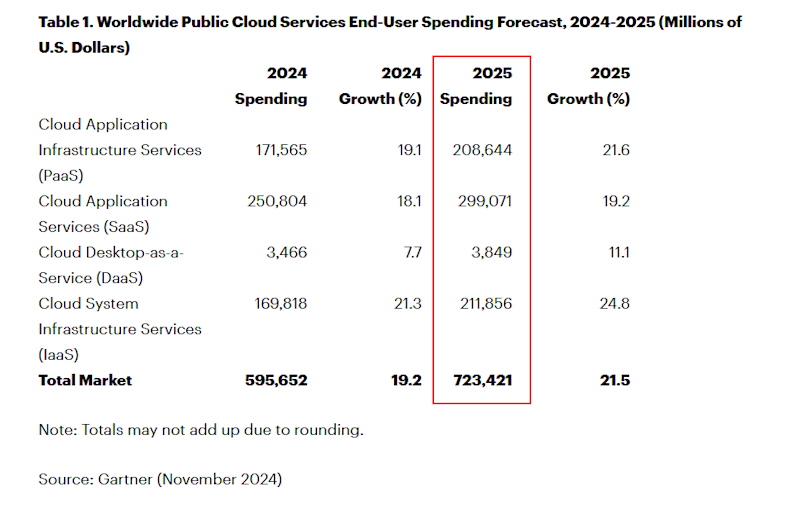
So yeah, businesses are definitely investing heavily in the cloud, creating a steady demand for Cloud Architects.
As for the salary we’ve hinted at? Well, it’s pretty good.
How much do Cloud Architects get paid?
In 2025, the average salary for a Cloud Architect in the U.S. is around $202,000 per year, according to Glassdoor.
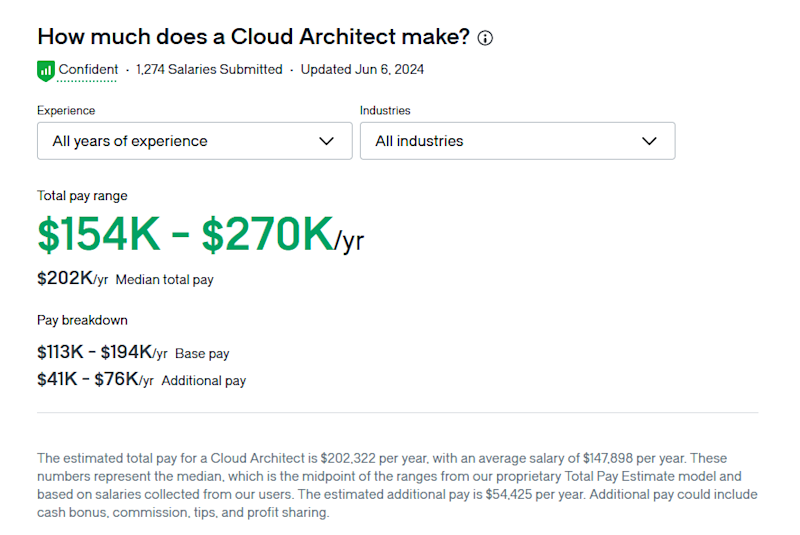
Not bad right? And for those with experience, salaries can soar well beyond that…
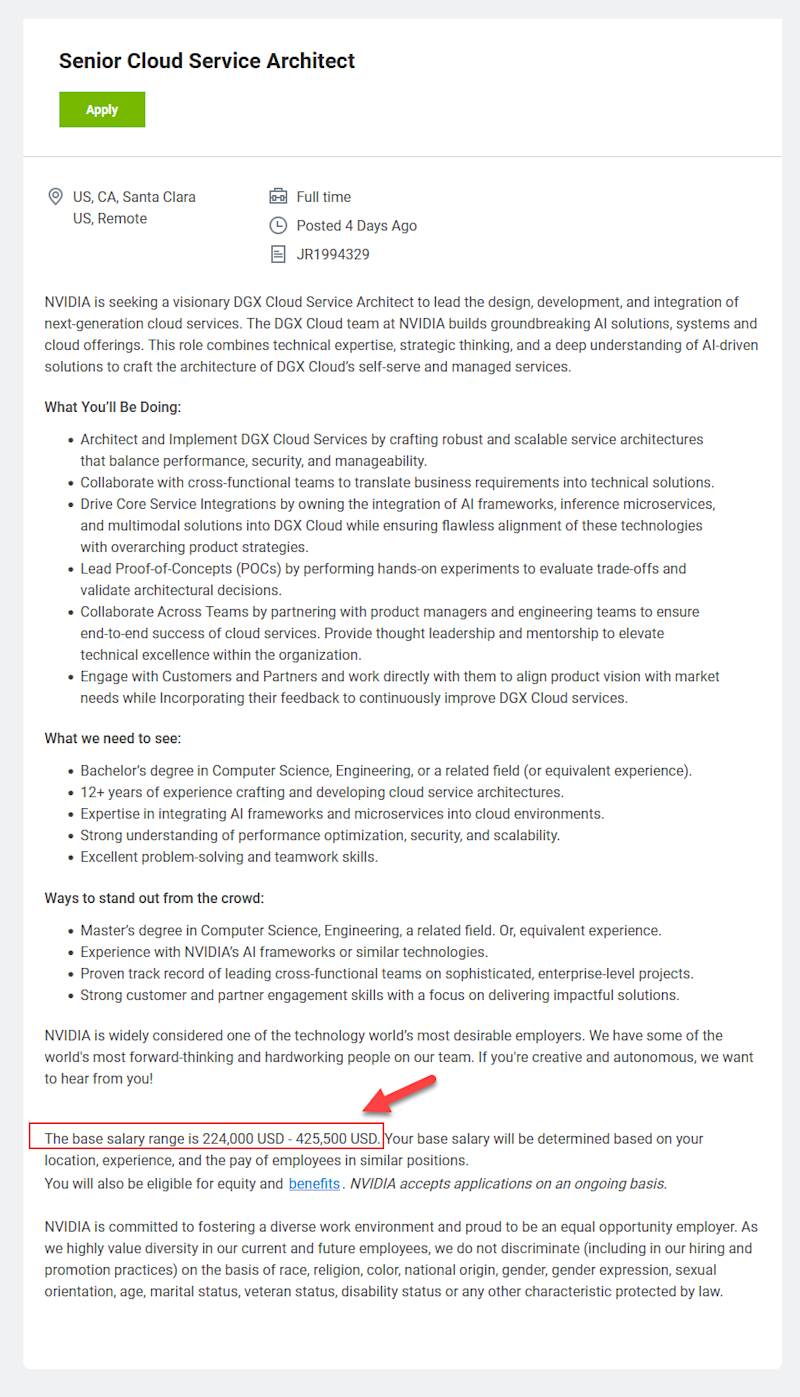
Base salary is between $224,000 and $425,500 based on experience, and that’s not to mention all the other benefits!
Now, obviously Cloud Architect salaries can vary based on factors like location, experience, and certifications, but this is definitely a high earning role.
Do I need a degree to become a Cloud Architect?
Nope! Tech is a pretty unique industry in that all they really care about is if you can do the job, and prove that you can do it. Be it previous experience, project work in a portfolio etc.
Some of the HUGE companies might ask, but honestly, even those companies are moving further away from the need for a degree.
For example
If we look at the Senior Cloud Architect role again you can see how they are happy just for relevant experience:
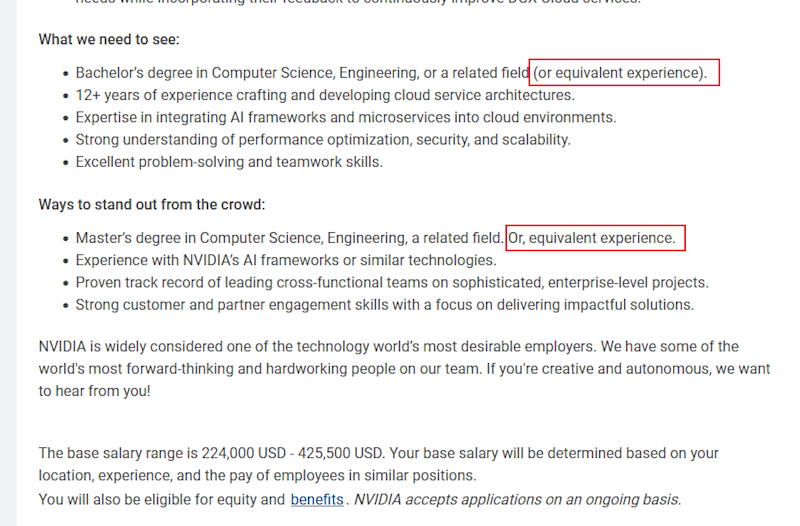
And to put that into perspective, NVIDIA was until recently valued as a $3 trillion dollar company, which makes it one of the biggest tech companies in the world.
So yeah, a degree is definitely not needed. In fact, once you work in the tech industry for a while you’ll soon notice that many people are self taught rather than having CS or Eng degrees.
As long as you can show you can do the role you can get the job.
Is it hard to become a Cloud Architect?
Not especially. It's not the easiest tech role to land but also not the hardest. Like all career changes and learning new skills, it takes time but it’s definitely doable regardless of your background. You just need to learn the right things and get some experience with them.
That said, the Cloud Architect role is usually a more senior position and does require a pretty wide variety of skills and experience across multiple tech fields:
Networking: Understanding how systems connect and communicate
Operating systems: Familiarity with Linux, Windows, and basic command-line tools
Security: Knowing how to protect systems with IAM, firewalls, and encryption
Programming: Basic skills in Python, Java, or another language to solve problems and automate tasks
Soft skills: Communicating technical ideas and collaborating with teams
There's a lot to learn but totally possible.
Most people who train to become a Cloud Architect will usually start out in another role such as a DevOps Engineer, System Administrator, or even a Software Engineer, and then build on their current skills to fill out any gaps and then move into the role.
If you're looking to get hired in tech as quickly as possible, you'll definitely be best off starting with one of those careers above or maybe consider one these entry-level tech jobs.
But if you already have some experience in one or more of the areas mentioned above, then taking the next steps to round out your skillset, getting certified, and going for Cloud Architect roles is a great idea.
How to become a Cloud Architect with no prior experience or a CS degree!
Because this role has so many different prerequisite skills, I’m going to walk you through the best path to becoming a Cloud Architect, assuming you have zero prior experience.
(If you already have some skills, feel free to skip those areas).
So let’s dive in…
Step #1. Learn how to learn
This first step is completely optional but highly recommended, regardless of your current level of experience because here’s the thing: Most people don’t know how to learn effectively.
It’s not their fault. Schools teach basic methods of learning which are pretty inefficient.
The thing is, there are multiple different learning techniques that you can use that make all of your future learning efforts far more effective. This means you can understand faster and more efficiently, so less back and forth.
You can learn a lot of the key techniques for free right now in this guide, or better still, watch every important technique inside of Andrei’s learning how to learn course.
Estimated Time Required For This Step: 5 days.
I know it might feel like a step backward or even a detour, but think about it like this:
You can learn the core principles in a few days and then immediately start putting them into practice
You're going to learn everything else on this list 2x faster which will significantly cut down your learning time
You’re always learning new things in tech. This helps you do that faster
So yeah, it might seem like a step back but it's the equivalent of stopping to fuel up your car vs pushing it everywhere. Once you take that extra action, everything else will get easier so make sure you learn this.
Step #2. Build a portfolio early
Remember how I said earlier that tech cares more about proving you can do something, vs having a degree? Well, that’s where portfolios come in. You set one up and share your work there so that prospective employers can see what you’ve done and then use that when looking at hiring you.
Admittedly at this point, you won't have created any projects, but it’s still worth setting up now and adding to as you go, versus trying to add it all later. (You always forget to add things otherwise).
Fellow ZTM instructor Dan Schifano walks you through setting up a portfolio that can stand out, in his course on personal branding:

Estimated Time Required For This Step: 2 days.
That course also gives some other tips and tasks to do just before applying for jobs, but we’ll come back to those later on.
For now, just make sure you have your portfolio in place, so you can start working on projects as you learn new skills in the next step, and then keep adding them to it.
Step #3. Build your foundations
This is where you’ll spend 80% of your time in this roadmap, so don't freak out about how long it takes. Focus on just ticking them off one by one.
I recommend working through them in the order here, as everything ties into each prior step in some way. (And for experienced people reading, follow the same path and just skip what you have already).
So let’s work through these…
Learn Linux
Linux is the backbone of most cloud systems, and is essential for interacting with servers, troubleshooting issues, and automating tasks.
In fact, a lot of cloud tools, such as Docker and Kubernetes are built on Linux, so understanding how Linux works will make it easier to pick up these tools later.
Estimated Time Required: 32 days.
Learn Terraform & Infrastructure as Code (IaC)
Cloud Architects don’t manually configure servers. Instead they automate everything using Infrastructure as Code (IaC).
Estimated Time Required: 20 days.
Terraform is the industry standard for provisioning and managing cloud infrastructure across AWS, Azure, and GCP. It simplifies deployments, optimizes costs, and ensures scalability, making it an essential skill for becoming a Cloud Architect.
At this point here, you could apply for DevOps roles and start getting paid. For the sake of this guide though, I’ll carry on walking you through the next steps to becoming a Cloud Architect.
Learn programming fundamentals (Python)
Python is the go-to language for Cloud Architects. It’s widely used for automation, scripting, and Infrastructure as Code (IaC).
By learning Python, you’ll be able to write scripts that automate deployments, manage infrastructure, and integrate services.
Estimated Time Required: 60 days.
If you already know Python, you could:
Either way though, you’ll need some programming skill so start with Python if you’re a beginner.
Understand networking basics
Networking connects everything in the cloud, so if you want to design secure and efficient systems, you’ll need to understand:
DNS
TCP/IP
Subnets
Firewalls
and how data flows through networks
A strong foundation in networking also ensures you can design cloud architectures that are reliable, scalable, and secure, so before you can work with cloud networking tools, you need to understand how networks operate at a fundamental level.
Estimated Time Required: 28 days.
Bonus: This course also sets you up to pass the CompTIA Network+ certification, a widely recognized cybersecurity and networking credential in the industry.
Learn how databases work
Databases store and manage data, and as a Cloud Architect, you’ll work with them constantly. Understanding how SQL databases function, how data is structured, and how networks interact with databases is essential.
Estimated Time Required: 45 days.
This course will teach you how relational databases work, how to write SQL queries, and how to manage database performance which are key skills when architecting cloud-based applications.
Learn Cybersecurity basics
Security is a top priority in cloud architecture. While earlier steps have already covered IAM, encryption, and firewalls, now it’s time to go deeper into securing cloud environments, monitoring for vulnerabilities, and ensuring compliance with industry regulations like GDPR and HIPAA.
Estimated Time Required: 30 days.
By understanding security best practices, you’ll ensure the systems you design are safe, compliant, and resilient against cyber threats.
Learn System Design
At some point, every system needs to scale. Whether it's a small startup that suddenly goes viral or a large enterprise processing millions of transactions a day. However, the way a system is designed determines whether it runs smoothly or crashes under pressure.
Estimated Time Required: 40 days.
It's important to understand how traditional architectures handle scalability, availability, performance, and cost optimization as these principles still apply when building in the cloud.
(This knowledge also helps when migrating on-premises systems to cloud environments).
Speaking of which...
Apply networking concepts in the cloud
Now that you understand how traditional systems are designed, it’s time to learn how they apply in the cloud environment.
This course introduces AWS-specific networking tools and teaches you how to configure secure cloud networks using VPCs, subnets, security groups, and IAM roles.
Estimated Time Required: 18 days.
Once you've got the basics down, now it's time for the more advanced cloud features.
Further explore cloud platforms
At this stage, you’ve covered networking, security, and system design, and you now understand how cloud systems are structured.
Now you’ll explore more advanced AWS features, such as:
Auto-scaling to handle spikes in traffic
Serverless computing to reduce infrastructure management overhead
Database migrations to move large-scale applications into the cloud efficiently
Estimated Time Required: 28 days.
Total time for all courses so far: 10 months
You now have all the relevant skills required for the Cloud Architect role. You just need to build out some relevant experience before you apply for jobs, which brings us to our next step.
Step #4. Get some hands on experience and build on the cloud
This is where you put everything you’ve learned into practice, and build some cloud-specific projects for your portfolio, giving you concrete proof of your abilities to showcase to employers.
(You should also have other projects in there to showcase your other skillsets, but these are so you have relevant direct experience).
However, before diving into projects, it’s essential to understand how cloud systems should be designed. The good news is AWS has our back here.
Learn the AWS Well-Architected Framework
The AWS Well-Architected Framework provides a roadmap for creating secure, scalable, and cost-effective architectures.
Its six pillars:
Operational excellence
Security
Reliability
Performance efficiency
Cost optimization, and
Sustainability
All help ensure that your designs meet both technical and business requirements, so go ahead and give that a read. Then we'll apply what you've learned.
Create some guided cloud projects
Guided projects are a great way to build confidence and apply the Well-Architected Framework principles.
The good news is I have a few of these for you to try out.
First off, Amazon offers tutorials for deploying web apps, setting up secure databases, and using serverless tools like AWS Lambda.
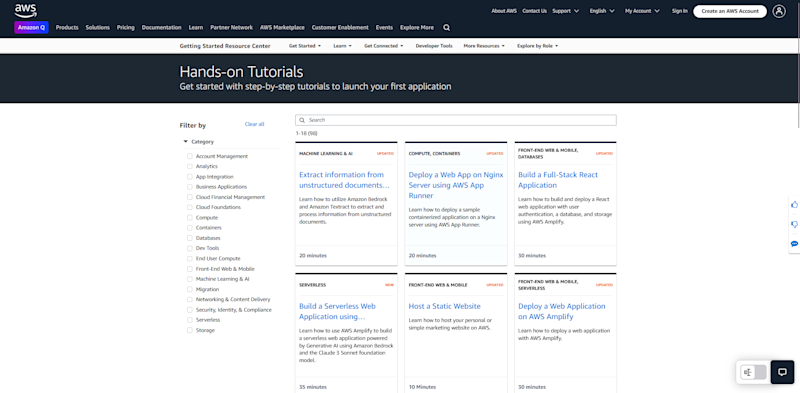
After those, you can check out my tutorial that shows you how to build an end-to-end web app in AWS from start to finish.
Estimated Time Required: 1 day.
This project will teach you how to apply all of the concepts you’ve learned so far.
Build and enhance your own projects
If you really want to stand out to interviewers then once you’ve completed guided projects, I recommend moving on to building unique projects of your own.
Potential own cloud projects ideas could be:
Migrating an existing app to the cloud: Show your ability to integrate existing systems with cloud platforms
Optimizing for scalability and efficiency: Use tools like auto-scaling and load balancing to handle increased traffic or reduce costs
Creating hybrid or multi-cloud solutions: Design systems that combine AWS with Azure or Google Cloud to meet specific needs
Enhancing security and monitoring: Implement IAM policies, CloudWatch logs, and compliance standards for real-world scenarios
Estimated Time Required: 7-14 days.
Remember that these projects don’t need to be from scratch. You could take previous projects in your portfolio and then add a cloud spin on them.
Step #5. Get certified
Cloud certifications are highly respected in the industry, and are often listed as a requirement for Cloud Architect roles. And because we’re almost at the stage to start applying for jobs, we need to get those certifications now.
The good news is we’ve covered 3 courses already earlier in this roadmap that are specifically designed to help you pass 3 core certifications:
And the bonus CompTIA Network+ Security exam
You have all the knowledge to pass them. You should just need to sit the exams.
I recommend giving them a quick watch through and taking the practice exam projects inside the courses list. Then take their corresponding exams. (You’ll find links to them inside those courses).
Step #6. Get job ready
Alright, it's almost time to apply for jobs. However, before we apply, we want to make the best first impression that we can, and it involves 3 things:
Make sure that your LinkedIn profile is looking professional and up to date. Even if you don't use the platform to apply for jobs, potential employers may look on there to check you out. Not to mention, you can even get approached by headhunters and get job offers with you even applying!
Create a one-page resume for applications. Some will ask you to submit it when you apply online, so get one made
Tidy up your portfolio of your project work. Companies are going to want proof that you can do the work required, so it’s important to have a portfolio of projects you’ve completed. Hopefully you’ve been keeping on top of this as you’ve been going through each course!
The good news?
Dan Schifano’s personal branding course that we mentioned way back in Step #2 that taught you how to build a portfolio, also covers all this and more to help you get hired, so check that out again and do those tasks.
Then it’s time to apply for jobs!
Step #7. Apply for jobs
Tech role interviews are a little different to other job interviews, in that you’ll often be asked to solve specific questions around your role to prove you have the basic understanding of how to do it.
If you're a ZTM member, then I HIGHLY recommend you check our Andrei's new course on getting hired at your dream job:
Estimated Time Required For This Step: 12 days.
He covers all this in far more detail, including his technique to get a 90% interview success rate!
If you're not a ZTM member, we have a guide on applying for tech roles and acing the tech interview, but here are a few extra tips also.
Remember that tech jobs are more than just tech skills
In addition to the technical know-how that you’ve built up through courses and certifications, interviewers will be evaluating your soft skills and how well you can communicate, so:
Be prepared with examples showing how you’ve collaborated with co-workers or led teams or projects in the past
Be able to explain the decisions you made for the projects in your portfolio and discuss various trade-offs that you made
Make sure to demonstrate strong communication skills in writing and during the interviews (whether virtual or in-person)... Even very basic things like using proper grammar and having no spelling mistakes, sending a thank you email within 24 hours of your interview, etc
Make sure to have specific examples of how you’ve solved problems
It's worth noting that for this role, you’ll likely get a lot of scenario-based questions, such as:
How do you architect something in a way that’s highly available?
How do you ensure applications can be recovered quickly in the event of a failure?
How do you protect your systems and data?
The company needs to save money on a cloud computing platform; what do you do?
You may also get some basic questions relating to the specific cloud provider, such as how a particular computing service works, or the performance differences in databases.
Important: For all questions, just make sure that you have a solid understanding of the pros, cons, and trade-offs of a particular approach, as this shows problem solving, flexibility, and adaptability.
For example
Just because you know the best way to theoretically do something, it might not be the best way for that company, as they don’t have the budget for it.
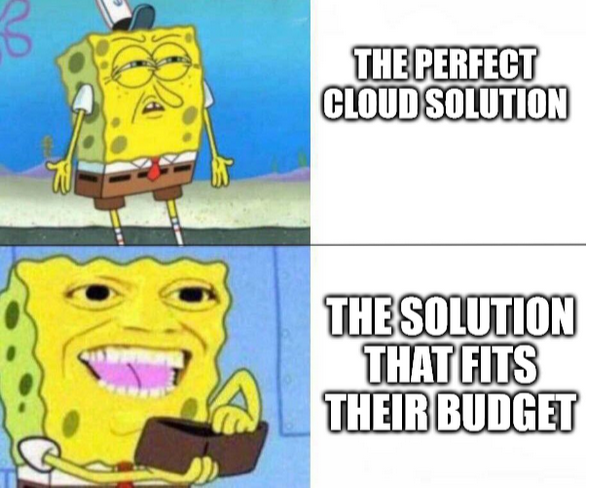
With this in mind, make sure that you can articulate why you would do things one way or the other, and have lots of examples up your sleeve.
Don’t skip the usual interview prep
Like any other kind of interview, it’s always good to:
Research the company. Learn what you can about their needs and why they’re hiring for your role
Learn what you can about the people you’ll be interviewing with, and what their potential areas of focus will be. You can always ask when they offer the interview, and they will happily let you know
Practice, practice, practice. Do a mock interview with friends or family, or even just interview yourself, speaking your answers out loud. It’s amazing the difference this makes, and how much more polished you’ll be on the big day
Be on time (or even a little bit early) for the interview
Dress the part. Figure out the norm for the company’s culture (jeans and T-shirt or more professional?) and dress to fit in. If you’re unsure, err on the side of dressing up
Do all this, and you’ll smash the interview and get the job.
Estimated Time Required For This Step: 30-60 days. Mainly because it takes a little while to prep, find roles, apply, interview etc. You could find something right away but not actually close final interviews for 30 days after.
At this point though it's just a case of applying and then blowing them away with your skills. You've got this!
Get started today!
So there you have it. The entire roadmap to becoming a Cloud Architect within the next 12 months, or sooner.
This is a seriously great career to get into right now, with high demand, a great salary, and interesting topics to learn. Also, it’s not that difficult to learn, you just have to work your way through the steps.
Speaking of which…
P.S.
All of the courses I’ve mentioned above are all part of the Zero To Mastery Academy.
This means that if you become a ZTM member, then you have access to all of these courses right away and will have everything you need in one place. All inside of a single membership of either $49 a month, $299 for the year, or $1,299 for lifetime access to all courses.
Plus, as part of your membership, you'll get to join me and 1,000s of other people (some who are alumni mentors and others who are taking the same courses that you will be) in the ZTM Discord.
You can ask questions, help others, or just network with other tech professionals.
So what are you waiting for 😀? Come join me and get started on becoming a Cloud Architect today!
Best articles. Best resources. Only for ZTM subscribers.
If you enjoyed this post and want to get more like it in the future, subscribe below. By joining the ZTM community of over 100,000 developers you’ll receive Web Developer Monthly (the fastest growing monthly newsletter for developers) and other exclusive ZTM posts, opportunities and offers.
No spam ever, unsubscribe anytime
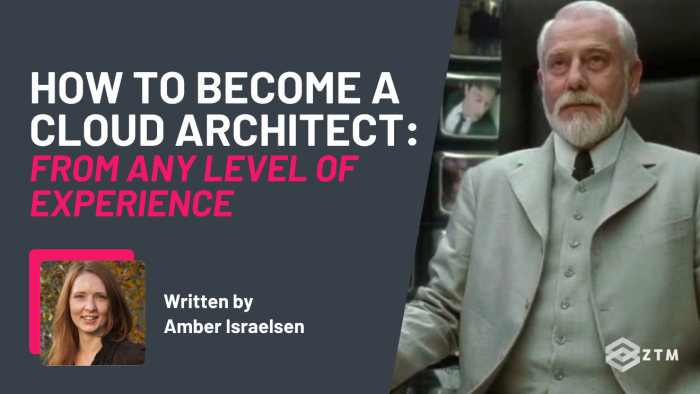
![Learning to Learn [Efficient Learning]](https://images.ctfassets.net/aq13lwl6616q/6VWcUgLgG0SU55ORlILe2S/e186361aeb48561bcd19ae6486577022/Learning_to_Learn.jpg?w=600&h=336&fl=progressive&q=50&fm=jpg&bg=transparent)




